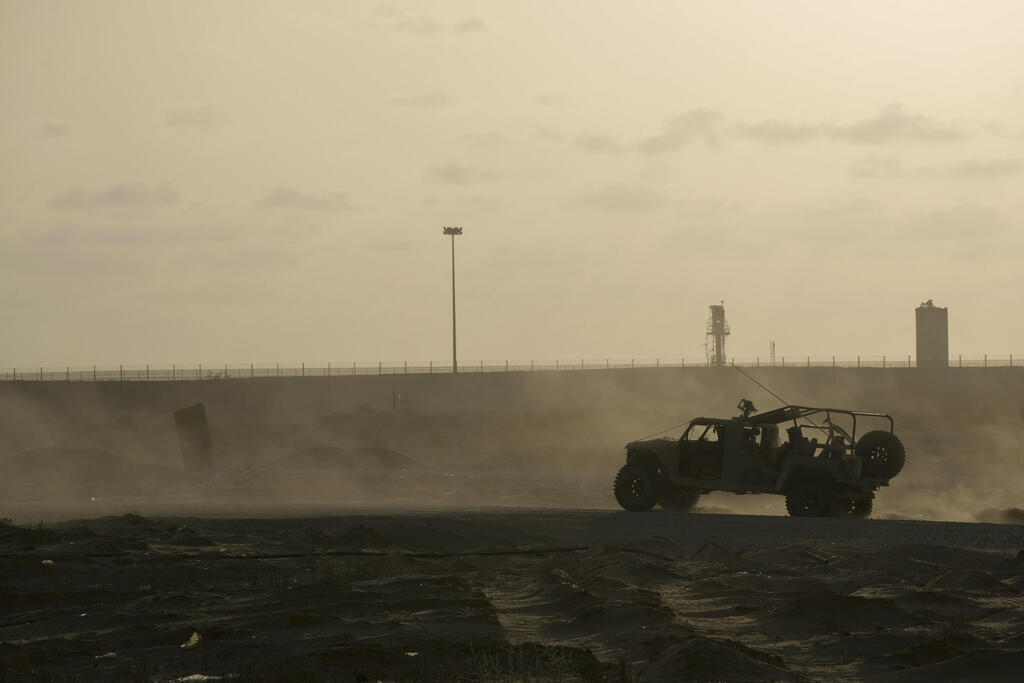Prime Minister Benjamin Netanyahu has yet to decide how to proceed with the hostage deal, as the first phase has concluded. The proposed framework includes two additional phases: a second phase involving a permanent cease-fire, the release of all remaining living hostages and the full withdrawal of the IDF from Gaza—where it currently remains only in the buffer zone and along the Philadelphi Corridor. The third phase entails long-term reconstruction of Gaza, during which the remains of fallen hostages would also be returned.
Negotiations on the terms of the second phase were supposed to begin on the 16th day of the cease-fire—February 4—but have yet to start officially. However, talks are ongoing with the mediation of Qatar, Egypt and Trump's regional envoy, Steve Witkoff. Strategic Affairs Minister Ron Dermer, who is in the U.S. and was appointed by Netanyahu to lead the negotiations instead of the heads of the Mossad and Shin Bet, has been in discussions with Witkoff over the past week.
2 View gallery


Steve Witkoff, Benjamin Netanyahu
(Photo: Reuters/ Evelyn Hockstein/ Oliver Contreras/ AFP)
Israel is preparing to send a delegation to discuss the next steps, but it has yet to be determined whether talks will be held in Cairo or Doha. Israel is also waiting for Witkoff’s visit, which was postponed this week. Sources in Israel were informed that he plans to arrive next week, but he made it clear that his visit will depend on progress in the negotiations.
Possible scenarios and the Philadelphi Corridor hurdle
"If negotiations progress positively enough—this is an initial stage where we set certain boundaries, outline what we want to discuss, and define the outcomes we expect… if everything goes well, I might be able to arrive on Sunday to finalize and implement the agreement," Witkoff said at an American Jewish Committee conference. He expressed optimism but remained cautious: "We've had many discussions and people are listening—but that doesn’t mean it will happen. The Middle East is a very chaotic place."
Israel now stands at a crossroads with three main options: resuming hostilities, moving to Phase II or extending Phase I with additional hostage releases. Decision-makers in Jerusalem favor extending Phase I, which could also temporarily defuse political obstacles for Netanyahu, particularly the threat from Finance Minister Bezalel Smotrich to quit the coalition if the war ends.
A security official described this scenario as an "interim deal" that could lead to the release of additional hostages. "We will try to prolong the cease-fire. Hamas does not want the fighting to resume—it is not in their interest," he said.
U.S. President Donald Trump speaks about the possible next phase
Under this scenario, Israel is expected to demand the release of captive fathers still in Hamas' hands, as well as hostages believed to be wounded or ill based on information from captivity survivors. Witkoff hinted at this possibility, saying that advancing Phase II alongside the "release of additional hostages" is a "real option."
Get the Ynetnews app on your smartphone: Google Play: https://bit.ly/4eJ37pE | Apple App Store: https://bit.ly/3ZL7iNv
Hamas has not ruled out extending Phase I but has signaled that it will demand a higher price for each hostage—requiring new negotiations over prisoner-to-hostage release ratios.
Senior Hamas official Mousa Abu Marzouk, in an interview this week, expressed regret over the October 7 massacre due to the devastation it has brought upon Gaza. Speaking to The New York Times, he said that if Phase I is extended, Hamas will demand significantly more prisoners in exchange for each hostage—500 to 1,000 terrorists per hostage—viewing all remaining captives as soldiers. Israel also anticipates that Hamas will seek an increase in humanitarian aid to Gaza.
A further complication in this scenario is a clause in the current agreement requiring Israel to begin withdrawing from the Philadelphi Corridor by this Saturday—the 42nd day of the cease-fire—and to complete the withdrawal by day 50. This is one of the "red lines" Smotrich has set for Netanyahu.
Some believe Israel has no intention of pulling out of Philadelphi, as the withdrawal constitutes part of Phase II, which is unlikely to be agreed upon. The security official addressing the matter called it a "complex issue" and noted "significant uncertainty regarding the expected withdrawal."
The second option: Progressing to Phase II
Moving to Phase II appears highly unlikely at this stage. Israel insists on achieving all of its war objectives, including dismantling Hamas' military and governing capabilities. Israeli officials have made it clear that in any negotiations for Phase II, Hamas would be required to disarm, demilitarize Gaza entirely and exile its leadership—following the Beirut 1982 model whereby Israel exiled the leaders of the Palestine Liberation Organization to Tunisia following its invasion of Lebanon.
"If Hamas agrees—great, the war can end," an Israeli official said. However, the likelihood of Hamas accepting these terms is extremely low. The group has signaled a willingness—at least on paper—to relinquish control over the future governance of Gaza. However, Israel has made clear that it will not tolerate Hamas ruling from behind the scenes in a "Hezbollah model" akin to southern Lebanon.
If Hamas refuses, and Phase I is not extended, the only remaining option is resuming military operations. "If Hamas refuses, Israel will achieve its objectives through intense fighting," the security official asserted. "This will be combat under a new chief of staff, with weapons and munitions received after the lifting of arms embargoes and with unprecedented U.S. support—which also wants to see Hamas destroyed. The fighting will be intense, and we will eliminate Hamas’ military and governing capabilities, including how humanitarian aid is handled. What was before will not be what happens now. The fighting will be different and so will the humanitarian aspect."
A senior Israeli official added: "Hamas will have to choose between three options—Phase II under Israeli terms, extending Phase I with additional hostage releases or a return to war."





